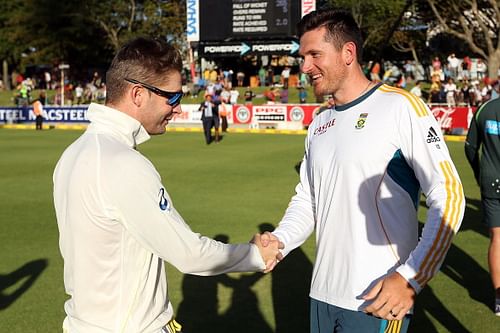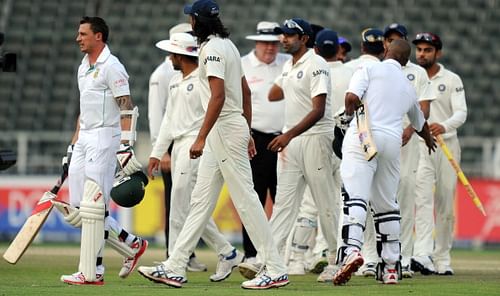
Could there be a change of guard in Test cricket?

Australia have shown more ruthlessness than South Africa
Could there be a change of guard at the top of the perch in world cricket sooner rather than later? South Africa have been at the top, especially in the Test rankings for quite some time. They have easily been the most consistent performers, without being dominating though. England and India, the previous two Number One ranked Test teams, lost their mantles after not being able to dominate opposition in all conditions. England recently losing five-nil to Australia away from home, and I don’t need to go into details about India’s history travelling outside the subcontinent.
In their last Test, South Africa were five overs away from maintaining their record of not losing a Test series at home in the last five years. 30 balls was what stood in their way of ending an enthralling see-sawing Test series in a one-all draw. It would have been an apt result for the Proteas. It’s the way the World Number One team has played, maintained and built on their lead ahead of the pack. It would have been an apt ending to the Test, the series, and the career of their captain Graeme Smith.
But it was not meant to be.
After the Proteas had ground it out for 134 overs, less than five overs from the close of play for the Test, Australia won the match and the series. More remarkably, the man who got the last two wickets should not have been bowling. Harris’s knees were basically non-existent at that stage, having put off surgery during the Ashes and after, to be able to contribute to this series.
That is how Australia played their cricket, instinctively putting a team victory ahead of all else.
The key difference between this Proteas setup, that has been consistent for quite some time, and the Australians of the 90s-00s, the Windies of the 70s-80s, and even the resurgent Australians of 2013/14, is a fear of failure. This fear of failure prohibits the Proteas, who are some of the most gifted players in the world, from dominating oppositions.
South Africa boast of a very talented squad of players, each boasting a skill set that opposition players fear of them using, and dream of having themselves. Steyn, Morkel and Philander hunt in a pack, and the team doesn’t seem to be even missing a frontline spinner with the likes of Duminy and Elgar pitching in from time to time. Despite an intimidating bowling pack, a squad that prides themselves as immaculate in the field, and a battling line up that grind away an opposition like Dravid and Laxman could, they still miss something that makes a dominating team.
Answers may emerge to what is missing if you look at South Africa in limited overs, specifically the tag that they’ve achieved after numerous failures in global tournaments. That infamous “chokers” tag. Former Protea, Herschelle Gibbs, described in his autobiography how the chokers tag that they were given by the opposition and the media, is not unfounded, and it comes down to an ingrained fear of failure.
In limited overs games, both T20 and ODI, South Africa have been susceptible to “choking” in key matches in big tournaments. Applied to the Test arena, in which the teams have five days to force a result, South Africa have the ability to get out of choking by having an ultra-conservative approach to the game.
Many times in their history, South Africa have managed to get out of a losing position to draw a game. Sometimes they have even managed to get out of a losing position, to be in a position of winning it, only to go for the draw due to this conservative approach.
Recently, in the curtailed two Test match series against India, after being in a being in a position where India were on top and needed eight wickets on Day 5 to win the game, South Africa played for the draw.

South Africa’s refusal to go for the kill may be their Achilles’ heel
In doing so, they tired the Indian bowlers, fielders and captain, and got into a position to win the game. Instead of risking it all and playing like a dominant team, one ranked so far ahead of the rest that they could afford to lose a few series on the trot and still be the best, their conservative values kicked in and Steyn and Philander abstained from chasing down the last few runs required in farcical circumstances.
This is why there seems to be a changing of guards in world cricket at the moment. While Australia are still quite a way behind South Africa, the brand of cricket – Michael Clarke and Darren Lehmann have been talking about for a while, the brand of cricket which isn’t all talk – have brought back to the game is one of ruthless aggression. Yes, they have a weapon in the mould of an in-form Mitchell Johnson, but Clarke and Lehmann’s leadership is the true weapon here.
Clarke is the sort of leader that would rather lose a game trying to win one, rather than going for the draw and playing negative, conservative cricket. If South Africa want to stay at the top of the perch in years to come, the captain who takes the recently vacated job must ditch behind South Africa’s conservative approach in Tests, and play with the aggression they can afford to. Especially considering the squad they have at their disposal.